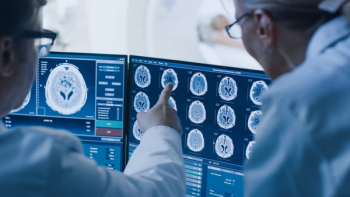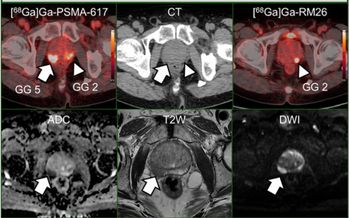
Contrast-enhanced Ultrasound in Children
Cost and safety of using contrast-enhanced ultrasound for children.
Pediatric contrast-enhanced ultrasound (CEUS) is a safe procedure and allows for less ionizing radiation and gadolinium contrast administration, according to a study in the
Researchers from the United Kingdom analyzed adverse incidents encountered in pediatric CEUS, and sought to determine if there were financial benefits to reducing the number of CT and MRI examinations among children.
The researchers analyzed all CEUS examinations performed on children aged 18 and younger between January 2008 and December 2015. The children received a median dose of 2.4 mL of a sulfur hexafluoride microbubble contrast agent, with ranges from 0.1 mL to 4.8 mL. All immediate reactions deemed due to contrast examinations were documented in radiology reports. Electronic patient records were examined for adverse reactions within 24 hours not due to an underlying pathologic condition. Costs were also compared: CEUS utilization cost at $94, CT at $168, and MRI at $274.
The results showed that of 187 boys and 118 girls (305 children total), 147 studies (48.2%) were ordered to characterize liver lesions and 113 studies (37.1%) for trauma. The remaining 45 studies (14.8%) were for renal, vascular, and intracavitary assessment. There were no immediate adverse reactions and delayed adverse reactions occurred in two patients (0.7%): transient hypertension and transient tachycardia. Neither was symptomatic, and both were deemed not due to the underlying disorder. The potential cost savings of CEUS was $74 per examination over CT and $180 over MRI.
The researchers concluded that the use of pediatric CEUS is safe and potentially cost-effective. Using CEUS in this population allows reduction in the ionizing radiation associated with CT and in the gadolinium contrast administration, sedation, and anesthesia sometimes required for MRI.
Newsletter
Stay at the forefront of radiology with the Diagnostic Imaging newsletter, delivering the latest news, clinical insights, and imaging advancements for today’s radiologists.













